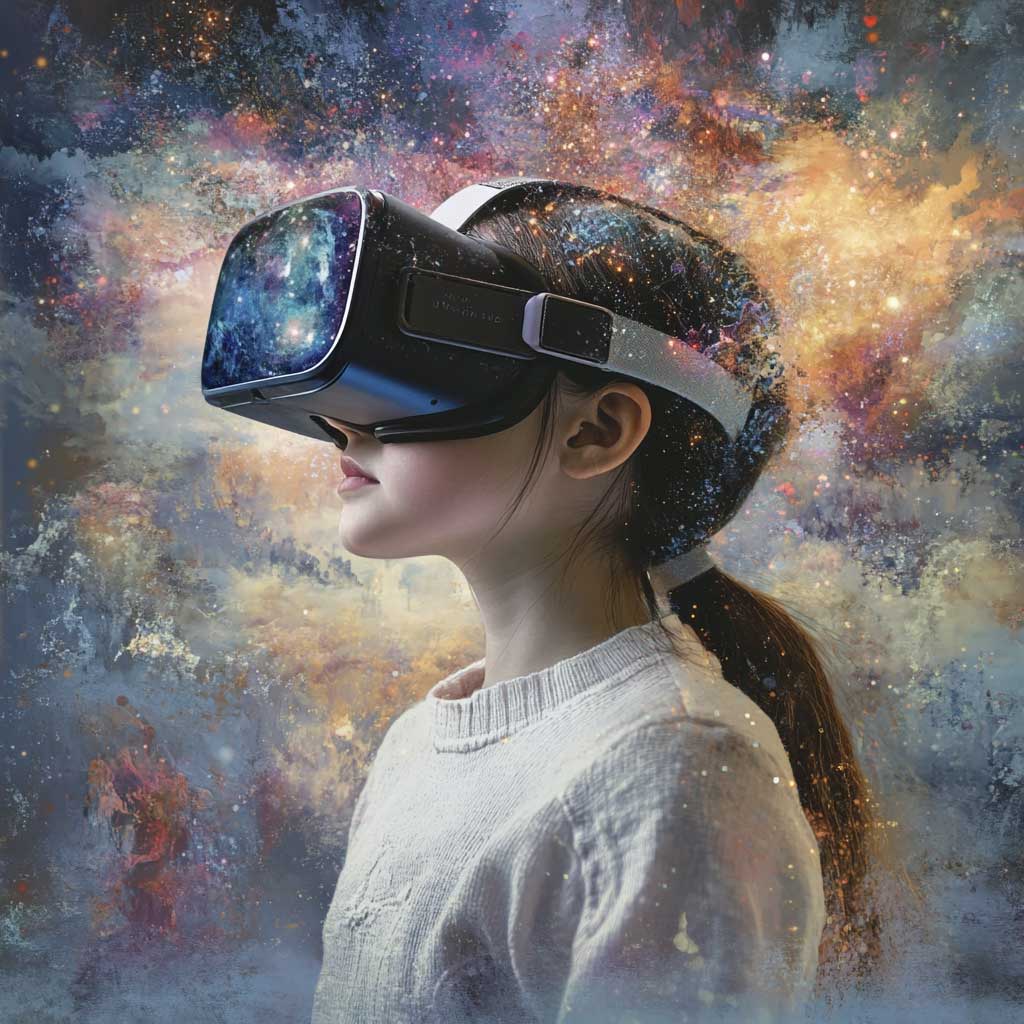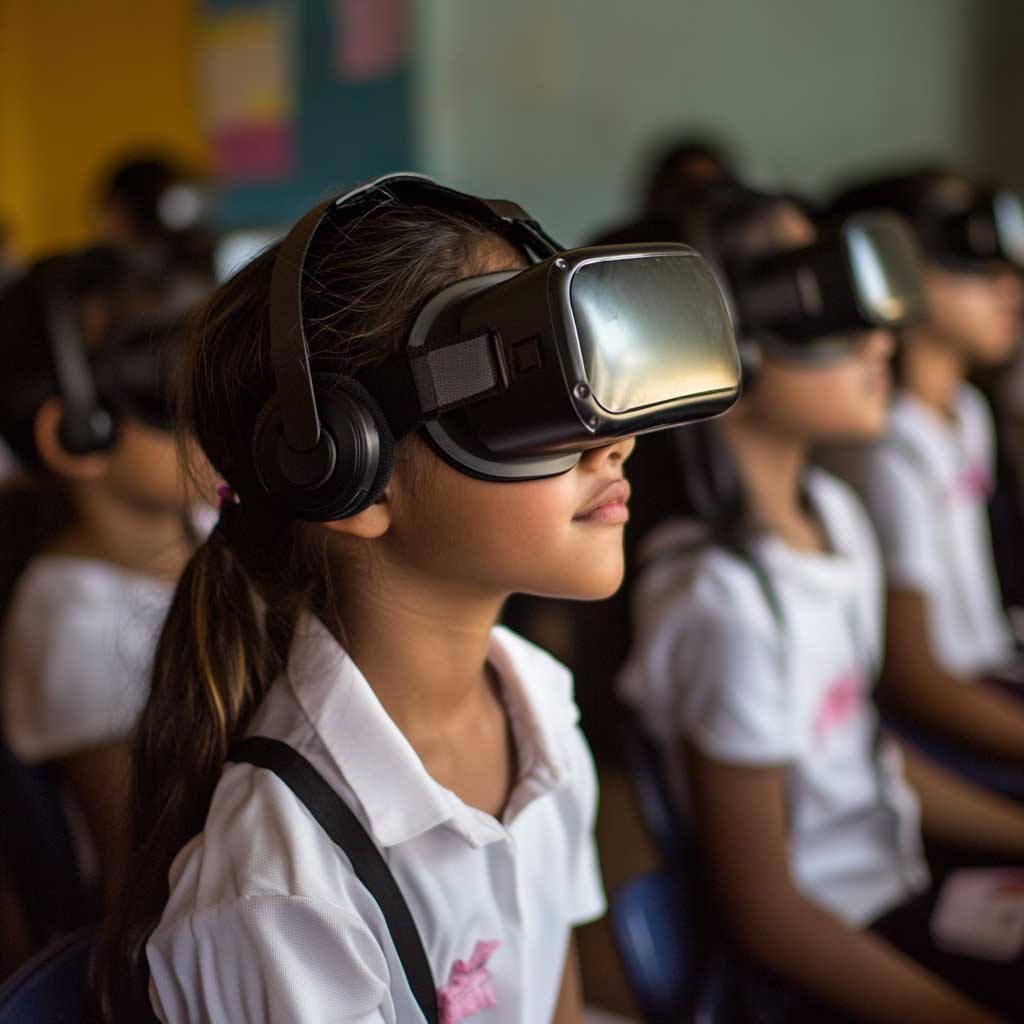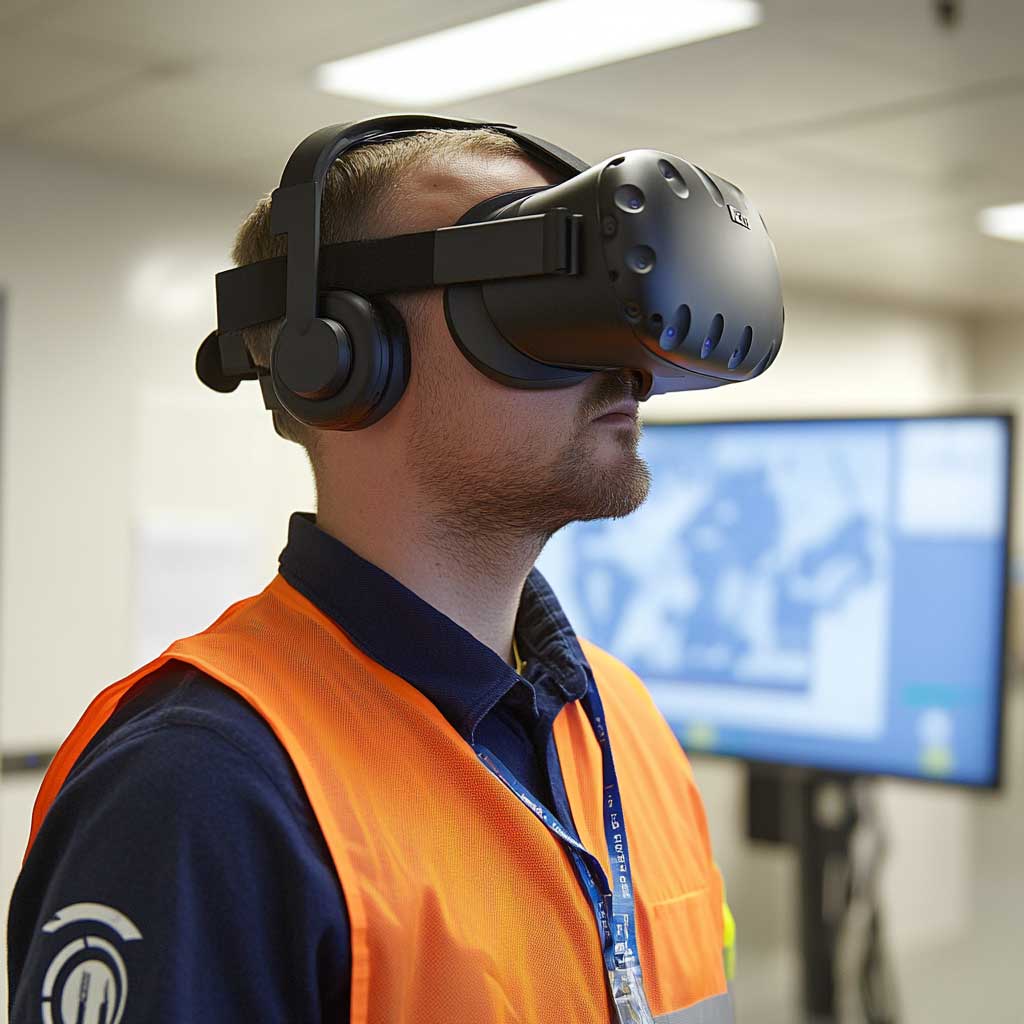
In recent years, Virtual Reality (VR) has transcended its initial role as a gaming platform, finding profound applications in education and training. While VR technology has long been associated with immersive gaming experiences, its potential to revolutionize learning and skill development across various domains is increasingly being recognized.
Virtual Reality: A Paradigm Shift in Learning
Virtual Reality represents a shift in the way we perceive and interact with digital content. By immersing users in simulated environments, VR offers an unparalleled level of engagement and presence, enabling experiential learning experiences that transcend traditional classroom settings.
In education and training, VR holds the promise of fostering deeper understanding, retention, and skill acquisition through providing immersive, hands-on experiences.
Applications of Virtual Reality in Education

One of the most compelling applications of VR in education is its ability to transport students to virtual environments that would otherwise be inaccessible or impractical to experience in real life. For example, VR simulations can recreate historical events, natural phenomena, or scientific processes, allowing students to explore and interact with concepts in ways that textbooks or lectures cannot replicate. This immersive approach to learning promotes active engagement and deepens comprehension.
In addition to content delivery, VR has proven effective in enhancing practical skills training across various disciplines. From medical simulations that enable aspiring healthcare professionals to practice surgical procedures in a risk-free environment to vocational training programs that simulate real-world work scenarios, VR provides a safe and cost-effective means of honing skills and building confidence.
Furthermore, VR offers unique opportunities for personalized and adaptive learning experiences. By tailoring content and pacing to individual learner needs, VR applications can accommodate diverse learning styles and preferences, ensuring that each student receives targeted support and scaffolding.
Benefits of Virtual Reality in Training
In the realm of workforce training and professional development, VR offers tangible benefits in terms of cost savings, scalability, and effectiveness. Traditional training methods often involve logistical challenges, such as scheduling in-person sessions or securing access to specialized equipment. VR-based training eliminates these barriers by providing anytime, anywhere access to immersive learning experiences.

Moreover, VR simulations enable trainees to practice complex tasks and scenarios in a realistic yet controlled environment, reducing the risk associated with on-the-job training. Whether it’s training airline pilots to handle emergency situations, equipping factory workers with safety protocols, or simulating customer interactions for service industry professionals, VR empowers learners to gain practical experience without real-world consequences.
Beyond skill acquisition, VR-based training can also enhance retention and transfer of learning. Studies have shown that immersive experiences leave a lasting impression on learners, resulting in higher knowledge retention and transfer to real-world settings. By engaging multiple senses and promoting active participation, VR facilitates deeper learning experiences that resonate long after the training session ends.
Challenges and Considerations
Despite its promise, the widespread adoption of VR in education and training faces several challenges and considerations. Technical limitations, such as hardware costs, system requirements, and content development complexities, may pose barriers to entry for some institutions and organizations. Moreover, ensuring equitable access to VR technologies and addressing concerns related to privacy, safety, and ethical use are critical considerations that require careful attention.
Looking Ahead: The Future of VR in Education and Training
As VR technology continues to evolve and become more accessible, its potential to transform education and training remains boundless. From K-12 classrooms to corporate training programs, VR has the power to revolutionize how we learn, teach, and train. By harnessing the immersive capabilities of VR to create engaging, interactive learning experiences, we can unlock new possibilities for knowledge acquisition, skill development, and lifelong learning.
Recent Blog Articles
Recent Blog Articles

When Online Dating Goes Wrong: The Dark Side of Digital Romance
Published on: February 4, 2025
Online dating has revolutionized how we connect with potential partners. Platforms like Tinder, Bumble, and Hinge offer convenience and a vast pool of singles at our fingertips.
Read time: 38 min

Maximizing ROI with Custom Software: A Smart Investment for Sustainable Growth
Published on: January 28, 2025
Organizations must continuously evolve to stay ahead. One of the most impactful ways to achieve long-term success is by investing in custom software solutions.
Read time: 23 min

AI-Powered Productivity: How Artificial Intelligence is Reshaping Your Industry
Published on: January 21, 2025
Companies that embrace AI today are positioning themselves for long-term success, unlocking unprecedented productivity and innovation.
Read time: 42 min

From Chaos to Control: How ERP Systems Revolutionize Business Operations
Published on: January 14, 2025
Enterprise Resource Planning (ERP) software has become an indispensable tool for organizations across various industries, transforming operations, improving productivity, and reducing inefficiencies.
Read time: 46 min

Tech-Enhanced Superpowers: Gadgets That Make You Feel Like a Superhero
Published on: January 7, 2025
Exoskeletons that grant superhuman strength, smart glasses that enhance vision, and wearable devices that provide a sixth sense, technology is enabling us to surpass our natural abilities.
Read time: 55 min

The Role of Tech in Modern Dating: From Swipe Right to Virtual Dates
Published on: December 31, 2024
Technology has fundamentally transformed every aspect of our lives, including the way we date. Gone are the days when meeting someone new required attending social events.
Read time: 41 min

Tech-Powered Ghosts: Can AI Bring Back the Voices of the Dead?
Published on: December 24, 2024
Humanity has always been fascinated by the afterlife and the possibility of communicating with those who have passed on. This curiosity has driven many stories, myths, and even scientific pursuits.
Read time: 29 min

